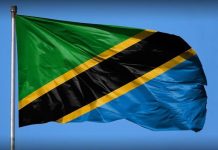Written by
Faridah N Kulumba
The government of Tanzania criticised Britain’s proposal for an immediate conference in Rhodesia, saying Britain still wanted to play a “facilitating role” rather than assume its responsibility as colonial power. On 30 September 2021, a Tanzanian senior official revealed to Reuters that this is not coming up of what they wanted.
The agreement
According to the senior official, the statement issued by the five African Frontline Presidents (AFP) in Lusaka in September 2021, made it clear that the “main actors” of any conference should be Britain, as the colonial power, and the authentic representatives of the Rhodesian people.
Birth of Criticisms
The terms of conference announced by the British Foreighn secretary, Mr Anthony Crosland seemed to leave Rhodesian Prime Minister Mr Ian Smith as one of the “main actors”.
Suggestion
Tanzania says that they do not sideline the whites, but they should come in as a special interest group, not to negotiate with Blacks. Suggesting that the main participants must be the representatives of the colony and the colonial power.
Background of Rhodesia
From 1970 the Republic of Rhodesia was an unrecognised state in Southern Africa equivalent in territory to modern Zimbabwe. Until after the Second World War the landlocked British possession of Southern Rhodesia was not developed as an indigenous African territory, but rather as a unique state that reflected its multitacial character.
This situation certainly made it very different from other lands that existed under colonial rule, as many Europeans had arrived to make permanent homes, populating the towns as traders or settling to farm the most productive soils.
Once Rhodesia had been introduced as a topic for discussion in international bodies, extension of the status quo became a matter of concern to the British government, which perceived the security as a serious embarrassment to the United kingdom.
In 1964, growing white dissatisfaction with the ongoing negotiations played a major role in the ousting of Winston Field as Prime Minister of Southern Rhodesia, who was succeeded by Ian Smith, chairman of the conservative Rhodesian Front Party and an outspoken critic of any immediate transition to majority.
PM Smith’s aims
According to the Smith government, the aim of the conference was to have an interim government to function until majority rule was implemented.
Both the white minority Rhodesian and the British wanted a transitional government with an African majority in the cabinet and an African Prime Minister.
African leaders were for a constitutional conference, which was to be held outside the country. However, it took another four years before such a conference could be held, eventuary leading to majority rule in 1980.
Interference in internal affairs of former colonies remains a major problem among former colonial masters. They have the best solutions to the world’s problems, while ignoring problems in their own backyards.
When Britain wanted a facilitating role, it was the beginning of the regime change agendas they have been sponsoring with their allies.







